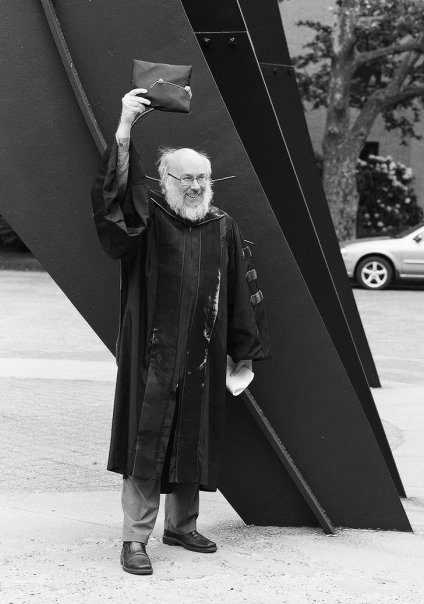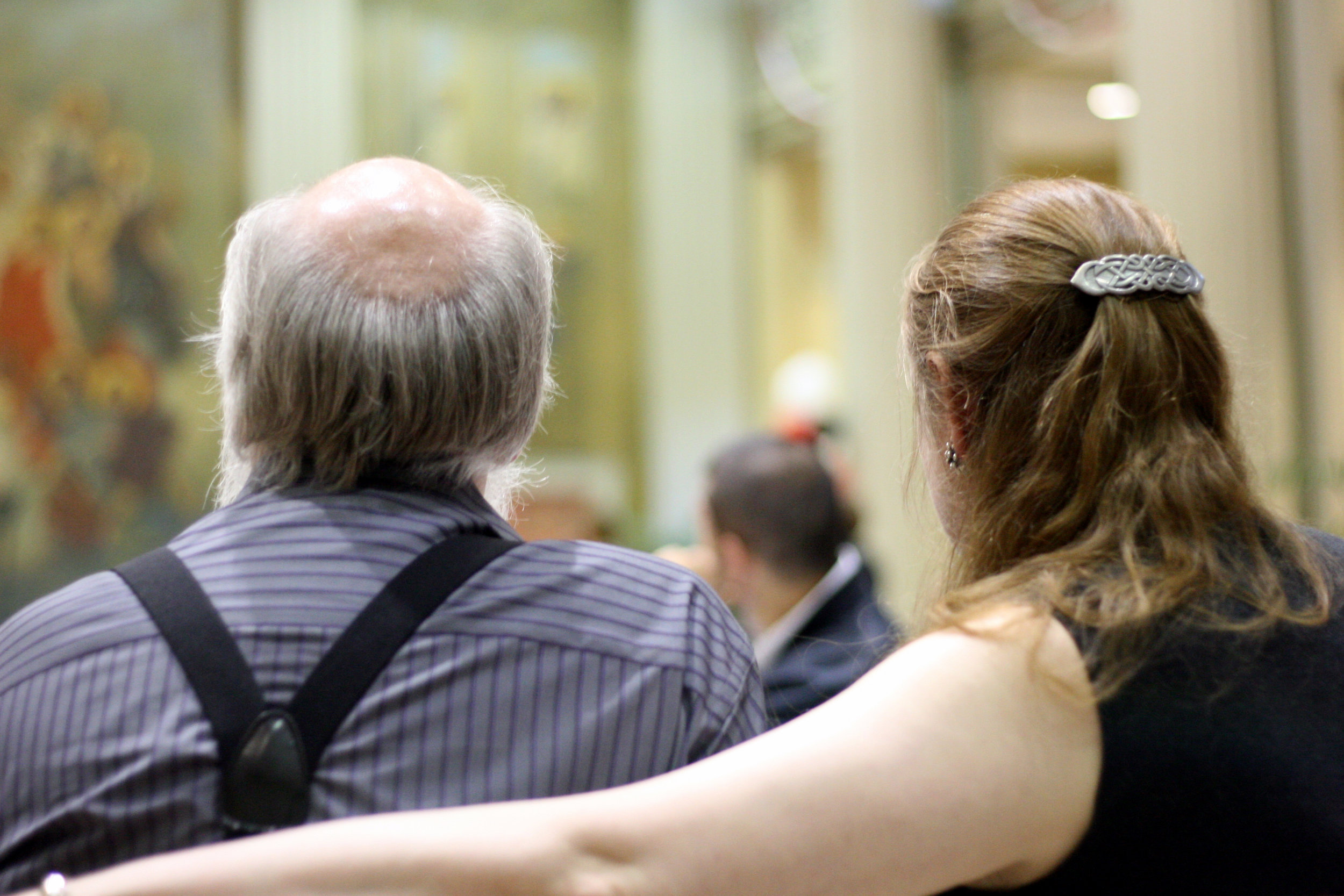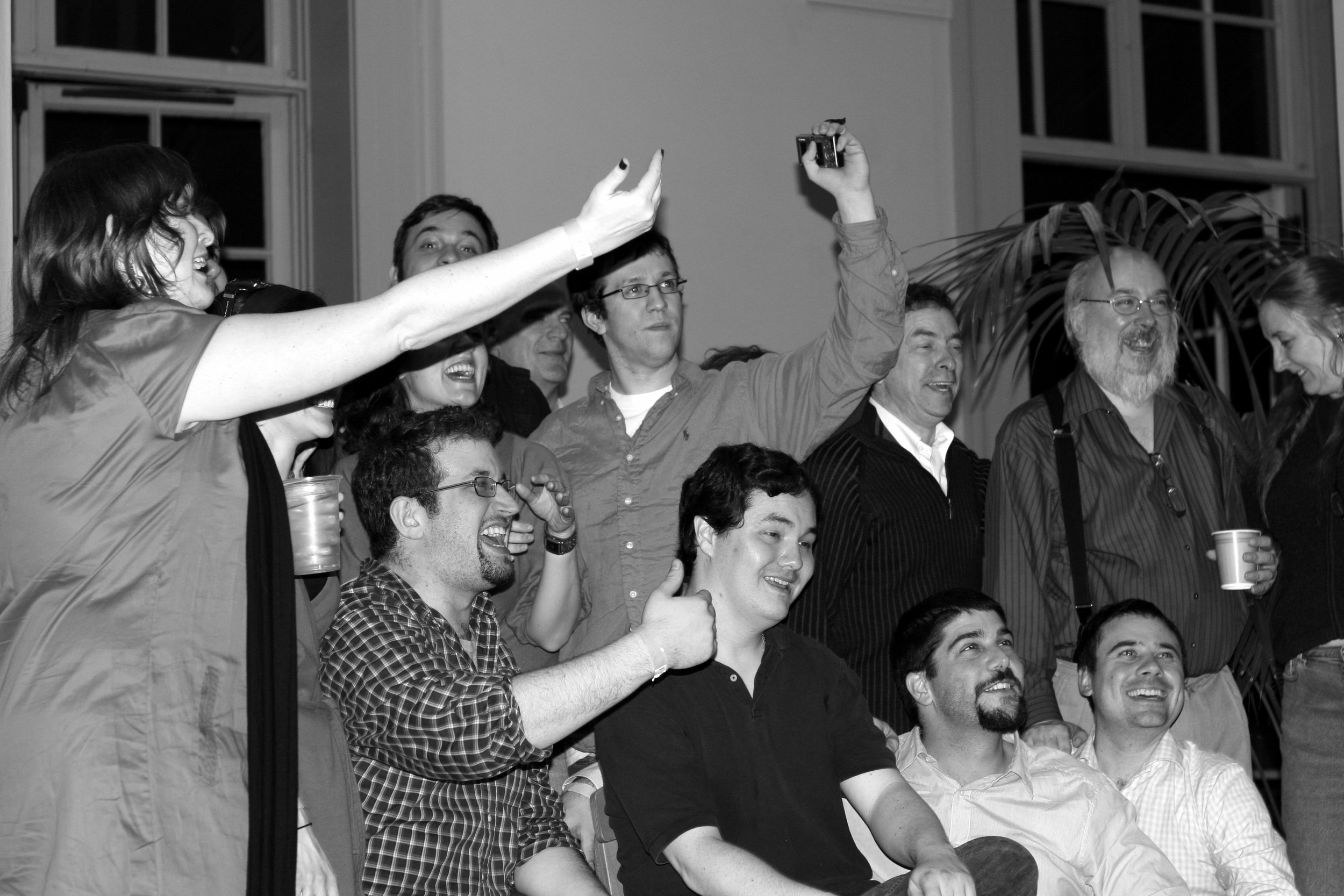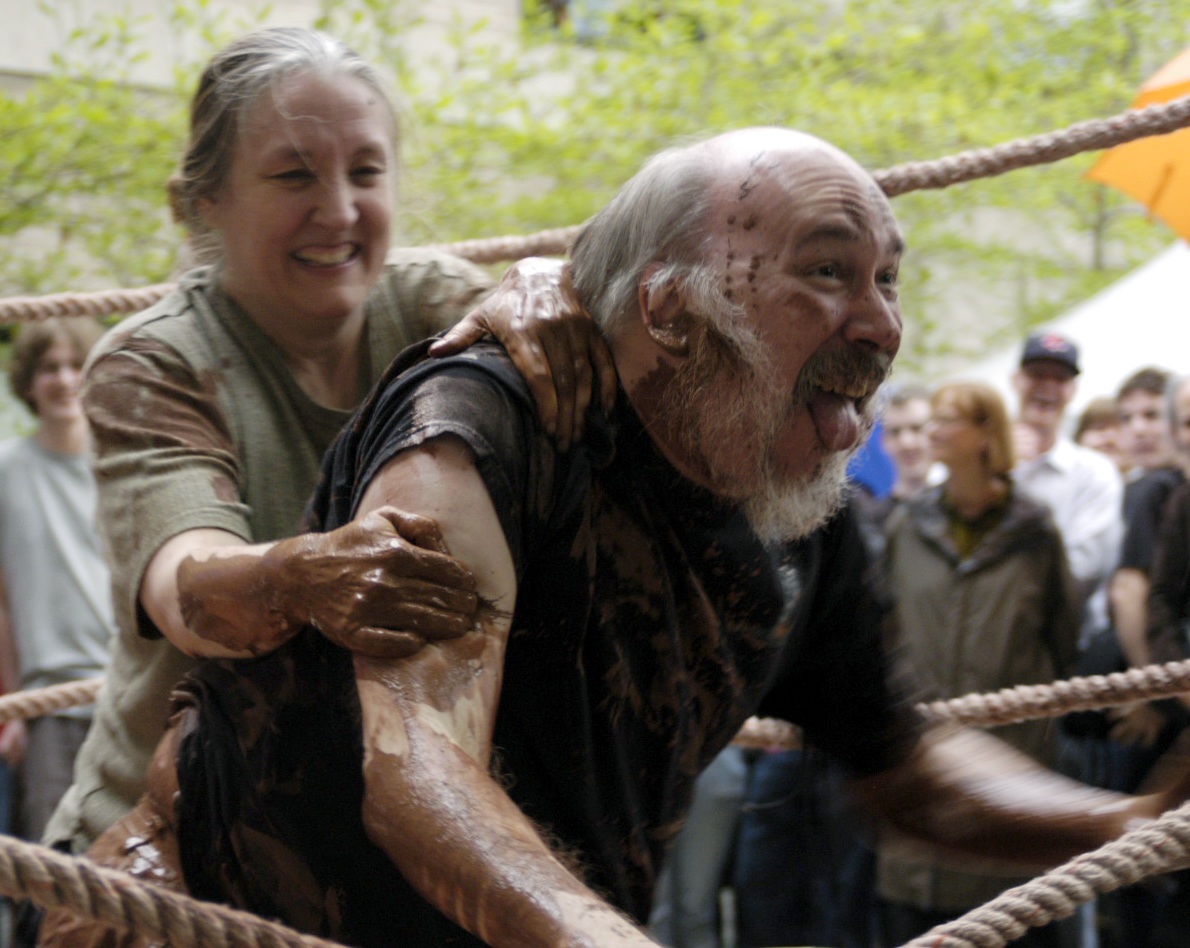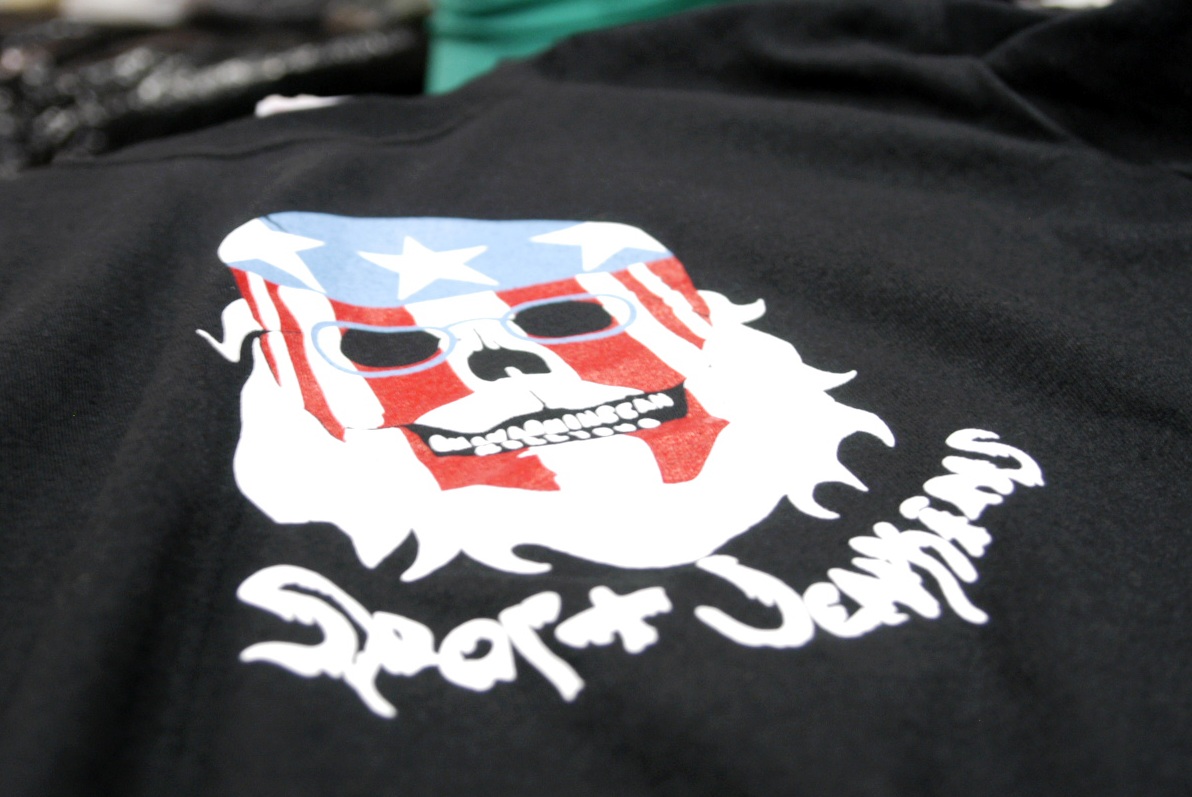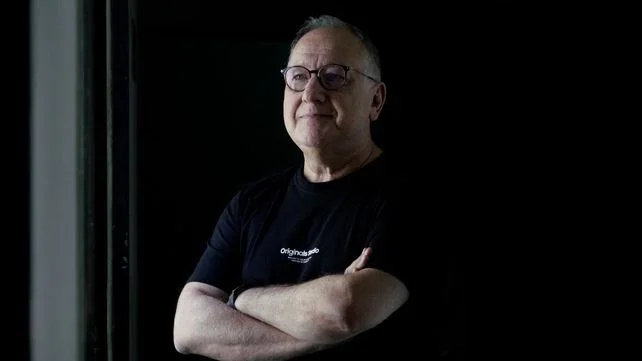My Wild and Wonderful Comic-Con Experiences
/The first thing about San Diego Comic-Con which hits you (sometimes literally) is the throng of attendees. A decade ago, the con attracted 45,000 people. This year, it attracted something like 125,000 fans. Most of the growth has been since the dawn of the 21st century, with the population expanding at something like 20,000 new guests each year. It's hard to think what other kind of event attracts such a large number of people and holds them together over a four day period. At any given moment, about a third of them is probably in the dealer's room and another quarter is spread across the two main halls -- Hall H and Hall 20 -- which is where the most star studded events occur. For those who want to attend Hall H events, it is not unusual for people to start lining up in the wee hours of the morning. We got there at 6:30 am for a 10 A.M. session on Doctor Who, for example. And the lines will wrap for several city blocks. In the midst of this chaos, though, the crowds are surprisingly well behaved. Every few feet there will be someone in a costume striking poses and photographers taking pictures and the crowd simply swerves around them so as not to disrupt the picture taking. A friend joked though that if you pause too long in this madness, a line will start to form behind you with people not quite sure what they are waiting for. The costumes by the way lead to some interesting rumors: Peter Jackson was rumored to have dressed up in a storm trooper costume so that he can navigate the floor of the dealer's room without being mobbed. My wife suggested that if Johnny Depp wanted to do the same, his best strategy would be to dress as Jack Sparrow, given the large number of great Jack Sparrow imitators wandering through the masses. At the end of the day, you will feel overwhelmed from the sheer intensity of trying to navigate around all of those people all day long. There are basically two strategies for dealing with the crowds at Comic-Con:
a)camp out all morning, get into Hall H or 20, and stay there as long as you can. Most of the high profile events are in those rooms and people will camp out through panels they have no interest in to be able to stitch together those events which are most important to them. This can be an advantage to smaller productions which get sandwiched between the core events. A film like Kick Ass or District 8 may gain much greater visibility because it grabs the interest of people who otherwise would not be motivated to attend. It can create enormous frustration, though, as when the Twilight fans arrived early in the day, took over the auditorium, and blocked others from attending panels they wanted to see (especially the sessions with Tim Burton and, as it turned out, Johnny Depp), when their session wasn't until much later in the day. Twilight fans, in particular, have a reputation for very focused interests, as opposed to the broad generic interests which might draw science fiction or comic fans to the event. (Of course, the conflict with the Twilight fans has as much to do with generational and to some degree, gender differences as anything else). My son and I ended up sitting through a really tedious session on the current state of the Star Wars franchise in order to be able to see James Cameron and Peter Jackson. It says something about how much Star Wars has fallen from grace that even so, that panel was only about a third full. It also says something about the limited knowledge of many reporters sent to Comic-Con that a USA Today reporter tried to make the disputes between old school and newer Star Wars fans a major story coming out of the event.
b) Attend smaller scale panels and avoid the main events as much as possible. Ironically, you can almost always get good seats on the comics-related panels at Comic-Con, given what a high percentage of the newer attendees come because of the media circus Comic-Con has become. Last year, I spent most of my time in Hall H or 20 and left disappointed that I had missed a chance to see some of my favorite genre writers and comics creators. This year, I tended to reverse the strategy, though I did manage to see, among other things, Sigourney Weaver and other "Wonder Women," The Cameron-Jackson exchange, and the Doctor Who, The Prisoner and Lost sessions. Because of my choices this year, I have a chance to share with you some of the stories the mainstream media didn't cover, assuming that you've read a lot already about the 20 minutes of footage from Avatar that Cameron showed. I wasn't able to get into that session, so I don't know anything you haven't already read.
Sneak Peaks
Warner Brothers offered sneak previews of three of its new television series: Human Target, V, and The Vampire Diaries. We arrived a few minutes into Human Target and missed the set up. All three of them suffer from some of the classic problems of pilots and have not yet achieved their full potentials. I will give Human Target and V second looks. Vampire Diaries, not a chance!
Human Target, based on long-running DC comics series, deals with a body guard who puts himself in harm's way to protect his clients and the support network he's built around him. The lead, Mark Valley, is engaging and good looking but a little flat, especially when compared to much more colorful performances by Chi McBride playing more or less the same cranky private eye character he did so well on Pushing Daisies and Jackie Earle Haley as a character with a dubious past who knows how to get the information needed just in time by hook or by crook. The pilot dealt with a murder attempt on board a high speed train connecting LA and San Francisco. It delivered the goods with some really spectacular action sequences. Personally, I still prefer Leverage which hits many of the same genre buttons. I fear that I may not have enough room on my Tivo for both.
V is of course the remake of the 1980s alien invassion series. Even a quick glance suggests that the producers have framed it as a neoconservative critique of the Obama era: with the Visitors making hopeful promises starting with a reform of the health care system, offering charismatic spokespeople who seem to be able to play upon the idealism of the young and the ambitions of the mainstream media. Elizabeth Mitchell (Juliet on Lost) plays a single mom, a federal investigator, who by the close of the first episode, is finding himself immersed in an underground resistance movement which promises to uncover and publicize the hidden truths of the alien conspiracy. This one was the strongest of the three and will certainly demand a second look, though I wasn't totally hooked after the first episode.
The Vampire Diaries sucked -- and not just in the ways you expect or want a vampire series to suck. Producer Kevin Williamson has been telling the press that Vampire Diaries is not Twilight the television series and after watching the pilot episode, which deals with a high school girl who seems on the path to falling in love with the new kid in the neighborhood who happens to be a vampire, I understand why. True enough, Twilight is the most successful of a broader range of "my boyfriend is a vampire" stories. You can love or hate Twilight but it does speak with its own voice. Vampire Diaries is what happens when you put Twilight, Gossip Girl, TruBlood, and Dawson's Creek into a blender. On a first viewing, I had trouble finding anything there that had not been done before and much better.
A personal highlight of the con for me was the session of The Middleman, which I wrote enthusiastically about here after hearing the pilot episode last summer, and remained totally hooked into till the bitter end. The Middleman came and went on ABC Family without getting any real attention from the mainstream media so odds are you've never heard of it. Picture something with the playful campy tone of the old Batman series, coupled with the chemistry of the old Avengers series, and the imaginative plots of the Men in Black movies. For me, all of the pieces worked; the cast was great and the dialogue was some of the best I've seen on television in the past few years with the possible exception of Pushing Daisies. If you haven't seen it, you must get the DVD boxed set which came out this month. Like many short lived series, The Middleman left many unresolved plot points in its wake, so it was wonderful news that the cast of the series would be reuniting at Comic-Con for a live table read of the script of a never produced final episode which promised to answer all of the remaining mysteries. (The same script has also been adopted into a graphic novel). I can't tell you how much fun it was to see the entire cast, in person, performing the script. Each cast member got wild applause on first entrance. Given the tongue-twister style dialogue, there were bursts of applause when an actor managed to pull off a particular convoluted section of the script. It meant so much that the producers, writers, and cast were willing to go this far in creating a sense of closure on the series -- as disappointed as we all were to see it come and go so quickly.
In terms of advanced footage, the best stuff I saw were some segments from the remake of The Prisoner, scheduled to run later this fall on American Movie Classics. I've long loved the original British series; the new producers are putting their own distinctive spin of that series's themes and concepts. A highlight will be the recurring role of 2 which will be played by Ian McLelland who chews scenery here with the same enthusiasm as he has done in the Lord of the Rings and X-Men movies. The new series is set in the middle of the African dessert rather than in a Welsh resort town but there are still giant white balls that chase down people who try to escape. This one will be high on my viewing schedule come fall.
Yes, They Still Talk About Comics
I was able to attend sessions focusing on three of my very favorite comics creators, Mike Allred, Seth, and Bryan Talbot.
Allred, often working in collaboration with his wife, Laura Allred, has produced some really wild romps through popular culture over the past several decades. He is best known for his work on MadMan, though I have also very much enjoyed his contributions to X-Force and X-Static (where Marvel's X-Man franchise parodies itself) and The Atomics. Allred's current run on Madman has been especially open to formal experimentation with one issue drawn in a range of styles as a series of visual shout outs to key influences on his work, constituting a mini-history of the comic arts, and another was designed so that the entire issue can be read as one continuous panel. The closest comparisons to the tone of his work might be Zot! or Concrete, that is, superhero comics with a strong sense of characterization and with an eye towards critiquing aspects of the culture around them.
Seth, by contrast, is drawn towards an entirely different set of cultural influences -- more inspired by old New Yorker comics than by the superhero tradition. He's a Canadian based indie comics creator, whose works speak to our shared obsession with residual media. It's A Good Life if You Never Weaken is a semi-autobiographical piece about his search for a long-forgotten cartoonist. Wimbledon Green is a larger than life story about the world's greatest comic collector (think Richie Rich if Richie Rich collected comics rather than cash). Clyde's Fans, still a work in progress, and his most recent graphic novel, George Sprott, are character studies of old men reflecting back on the past -- in the first case, the protagonist, among other things, collects postcards, while in the second Sprott was an adventurer, filmmaker, lecturer, and television host. There's so much to love about Seth's work -- a very humane and caring tone, a great attention to detail (especially the artifacts of our cultural past), solid characters, and a visual style which is at once retro and surprisingly fresh. Seth's public persona captures so much of what I love about his work: he is a very quirky guy who dresses in a timeless though vaguely retro style and speaks in a low key voice that fits his work perfectly. He read a series of short autobiographical bits which spoke to key influences on his work, how he thinks about stories and images, and what he did and did not learn in art school, all of which honestly helped me to understand his work more fully.
Bryan Talbot is a British cartoonist who has been credited with producing some of the first Steampunk comics in the English language, The Adventures of Luther Arkwright. Many of his works draw inspiration for late 19th and early 20th century British children's literature. The Tale of One Bad Rat includes long ruminations on Peter Rabbit and other Beautrix Potter characters. His more recent Alice in Sunderland is a long, rambling look at the creation of Alice in Wonderland which manages to convey large chunks of British regional history; the visual look of Alice is complex, scrapbook like, created through the juxtaposition of drawings and photographs, and is a powerful illustration of how graphic storytelling can be used for the purposes of cultural criticism and literary history. Here, he was speaking on the anthropromorphic tradition in British comics -- basically funny animal strips in the newspaper and magazines -- and how they have inspired his latest creation, Grandville, which is scheduled for release later this fall.
I also attended a lively session on contemporary art direction hosted by John Muto (Home Alone, Terminator 2 3D), who I have gotten to know through our mutual involvement with the 5D conference, and another session focusing on the life and work of Harvey Kurtzman, best known for his contributions to Mad, his war comics for E.C., and his Little Annie Fanny series for Playboy.
Henry Takes the Stage
This was the first year that I was speaking at Comic-Con. I was invited to join two panels, the first centering around the launch of the Institute for Comic Studies, and the second focusing on the current state of Harry Potter fandom. The Institute for Comic Studies is headed by Peter Coogan, who is the author of Superhero: Secret Origin of a Genre. I have agreed to be on the board of advisors for the organization which is designed to provide a central clearing house for initiatives supporting the teaching and research of comics, primarily on the college level. As someone who is doing more and more writing at comics myself, it is a thrill to see Comics Studies really start to take off as an academic field, albeit one which straddles a range of different disciplines and interests. Panels which the Institute organized at Comic-Con ranged from discussion of the forgotten erotic comics of Superman's co-creater Jerry Schuster to discussions of the mental health of the Joker to considerations of whether it would be possible for any mortal human to acquire the skills and tools that Batman displays in the comics. Some of the work is still very much in the range of fan boy speculation, though good fan boy speculation, while others is informed by historical, anthropological, art history, or cultural studies perspectives.
I told the group that we should learn from other fields which have sought to tackle materials beloved at Comic-Con: the teaching of film studies at the university level has broadened the public's background and tastes, especially around independent films, foreign films, and documentaries and thus expanded the market for kinds of films which don't play at the local multiplex; Game Studies has helped to rally a defense of the medium against censorship, with scholars being able to add credibility to industry participants concerned about freedom of expression issues. Both of these represent directions that Comic Studies could take. On the other hand, I fear that science fiction has been badly served by being folded into Literature programs with many college courses emphasizing only those works which are already in the canon but which can claim some association with SF, rather than dealing with the popular and pulp roots of the genre and the ways they influenced a much broader range of cultural materials. I worry that comics scholarship may emphasize indie and alternative comics at the expense of the popular roots of the medium, taking a "no capes, no flight" philosophy which again only accepts those works which can be most easily embraced by the literary and art worlds.
The panel on Harry Potter fandom was organized by Eric Bowling and included many of the key players in the fandom: Leslie Combemale from ArtInsights Gallery; Melissa Anetelli, webmistress for the Leaky Cauldron and author of the best-selling Harry: A History, Gwendolyn Grace of the HP Educational Fanon, Time Magazine critic Lev Grossman, and Heidi Tandy, a founder of the Fiction Alley website. I had gotten to know many of these great people through my participation the previous week at Azkatraz, a Harry Potter fan gathering in San Francisco. Here, there was lots of concern raised about Warner Brother's lack of Harry Potter promotion at Comic-Con and whether the fans still exert any meaningful influence over what happens next with this franchise. It was astonishing to me to see the number of people waiting in line for this session, which was standing room only and turned many away. A few came no doubt expecting to see cast-members, but most came to "represent" for their fandom.
There's so much more to tell but I am hoping this will give you some taste of the pleasures of this year's Comic-Con.

